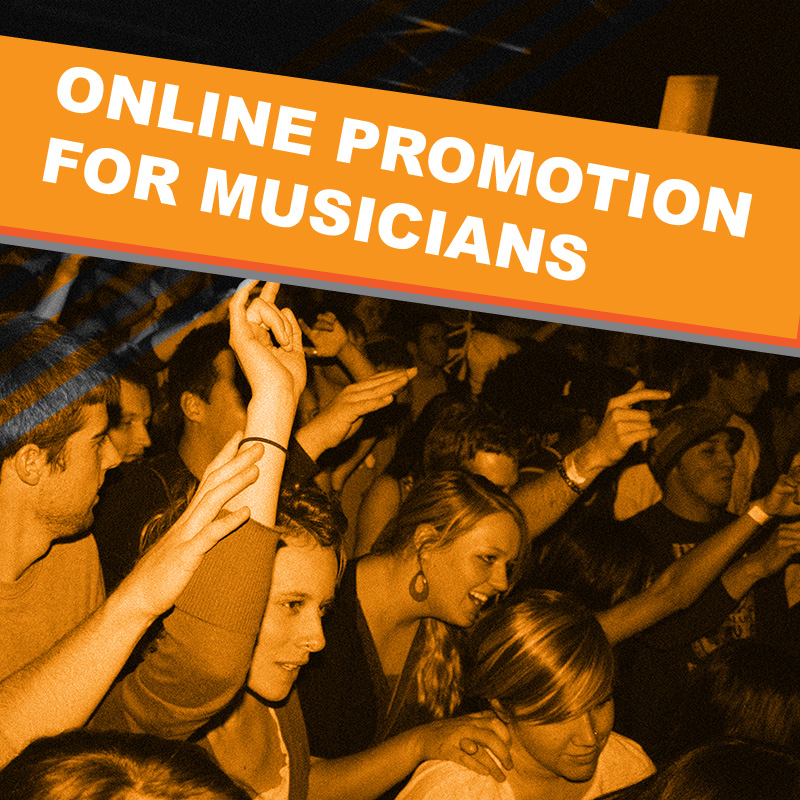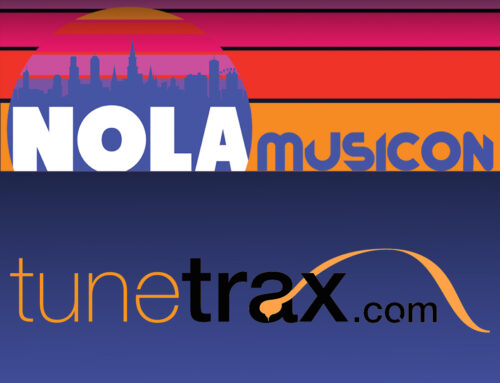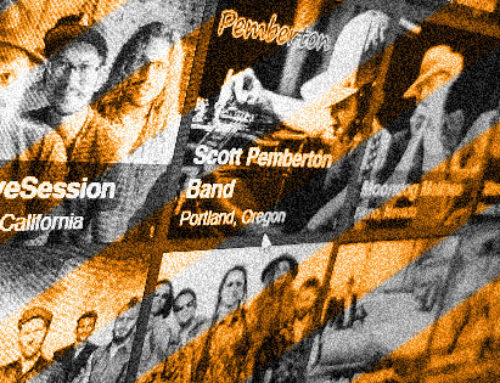Here are few tips to increase your exposure and to widespread distribution of your music.
We recommend the following:
- Determine your goals, audience, competitors, and challenges
- Find out what’s currently working … and what’s not
- Simplify monitoring
- Grow your following
- Create engaging posts
- Schedule your social media posts and promote your content
Connect with People, Connect to Music, Find your market
One of the most important things I’ve learned is that social media is an integral part of creating a fan base online. If your band doesn’t take the time to build and maintain a strong social following, then chances are you’ll get left behind. I hate to break it to you, but there’s a lot of independent bands and musicians out there. There is also more music than anyone can listen to in a lifetime! Even if you’re from a small town in the middle of nowhere, your online presence helps you compete on a global scale. We all know the key players in the social media game, but how are they different and how can each be used independently to flex your marketing muscle?
Here are some tips for how musicians can build a stronger social following:
– Offer more than just your music – As a musician, you’re selling your music. But that doesn’t mean that the music is everything. It’s also important to build your image online. And your image isn’t only defined by logos and cover images, but also by the people that make up your band. Of course you’re going to post about upcoming shows, press mentions and new releases, but it’s also a good idea to post content that speaks to your audience on a human level. As a band, you have the unique opportunity to be the “tastemaker” for your audience. Step outside the box and incorporate some non-band-related content that you find interesting and chances are your followers will find it interesting too.
– Be responsive – Nobody likes to be ignored. Whether it’s a direct message or a wall post, make a conscious effort to engage with your audience as much as possible. The more you engage with them, the more they’ll engage with you. You can even take the offline online, and give a shout out to a fan that came to a recent show and bought a t-shirt. Chances are you’ll make their day, and they might even share the post with their friends which could potentially help you snag a few more followers. This may not apply to you if you’re just starting out and have limited engagement, but it’s a good thing to keep in mind for when you build a larger following.
– Network with other artists – Whenever you’re a new band just starting out, it’s usually difficult to book decent shows since you don’t have much of a following. That’s why it’s important to network with some bands that have a better draw than you at shows. The benefit here is two-fold: You get to play shows that you otherwise wouldn’t be able to book, and as the opening act you also have the opportunity to poach some of the headliner’s fans. Don’t be afraid to jump on a few shows for free with some more established bands to get your foot in the door with a solid venue. Just don’t make freebies a regular habit. You never want to sell yourself short or take anything less than you feel that you deserve, unless you’re getting something else out of it like additional exposure or the opportunity to make more money in the long-run.
– Blog regularly – Now blogging may not fall within the realm of social media per se, but it definitely has a lot of potential social benefits from a content marketing perspective. Sometimes it can be difficult to say everything you want to say within a single post. That’s where blogs can help. Maybe you have an album coming out soon and you want to update your audience on your progress. With a blog, you can craft your post, publish it onto Tunetrax (Blog’s tab) and then share it across your various social channels. Also, instead of being limited to a few lines of text and a tiny thumbnail image, with a blog you can include more content by incorporating images or embeddable videos into your post to create a richer and more engaging user experience. And if you blog regularly, you can create some steady traffic to your website or blog on Tunetrax, which isn’t ever a bad thing. In fact, if you get a decent amount of traffic to your blog, you can even parley that traffic into an additional revenue stream by selling advertising space to relevant businesses within your niche, like music stores, music blogs and internet radio shows.
– Don’t auto-post ANYTHING – Seriously. Don’t do it. There’s nothing more infuriating than following a band on multiple channels and seeing the same post regurgitated on each one like a broken record. Every channel is unique and should be treated as such. Not only are certain types of posts more effective on certain social platforms, but by diversifying your online content, you’re actually casting a larger net. Social media is about people – not robots. By providing a unique experience on each of your social channels you’re giving your audience the most bang for their buck, and you’re also increasing the likelihood of them following you on all of your channels, as opposed to just one.
Facebook Advertising 101 For Musicians
Social media sites are great places to spread the word about your music, interact with your fans, and promote your tours and recordings. But what do you do when you’re ready to move beyond your friends, family, friends of friends, and real life acquaintances? Facebook Advertising can be an effective and inexpensive way to help you expand your social network, but it needs to be done the right way to truly be effective. Also, Remember, you do not own fans following on your Facebook Page, Facebook does!
The most important thing to understand about the Facebook Ads platform is that it is changes all the time. Facebook is constantly evolving – making tweaks and updates to its Terms of Service, how information is displayed, image sizes, etc, and Advertising is no exception. Be prepared to adapt your advertising strategy as changes are rolled out over time.
Identify Your Goals
Before you start a Facebook Advertising campaign think about what your primary goals are. Are you hoping to sell tickets for your upcoming tour? Boost sales of your latest recording? Get more people to “Like” your Facebook Page? Your approach will likely vary depending on what you are hoping to accomplish.
When you create an Ad you have the option to take people to a destination within Facebook, such as a Page or an event, or to an external URL. As a general rule, Ads that keep users within the world of Facebook tend to cost less than those that deliver them to another website. This makes sense, as it works out better for Facebook to have users stick around…where they can keep them engaged on the site and show them some more ads.
However, if your goal is for someone to purchase a ticket or download an album, things that can only be done on other websites, it might be more cost effective to bring them directly to the place on the website such as Tunetrax where they can make a purchase, or download a track…whatever you are considering a “conversion” for the purposes of this campaign. Delivering the user to your Facebook Page and then hoping they both see and act on a message about your latest tour or album is likely to result in fewer sales. Just remember, the more “clicks” that a person needs to make to reach an end result, the less likely they are to do it.
On the other hand, if you want to rival Lady Gaga’s number of Facebook Likes (59 million and counting…that’s going to take some work), it makes perfect sense to send anyone who clicks on your ad directly to your Facebook Page. The ads also give the option for users to click on the “Like” link directly from the ad, so you may very well see some new Likes coming from people who have never even visited your Page. That’s ok though, because anyone who Likes your Page will potentially see the messages you post in the future in their news feed.
How To
When you’re ready to start your Facebook Ad campaign simply go to www.facebook.com/advertising. You can jump right in and click on the “Create an Ad” button (the system does a pretty good job of walking you through the process), or learn more via the videos, tips, and FAQs linked to from the main page.
Experiment with a wide variety of ads to find which are the most effective. Vary the ad copy, images, and targeting, paying attention to the cost per click or cost per action of each iteration. Sponsored stories and sponsored posts are often very effective and low cost when compared to other Facebook Ads. Try setting up a “Recent Post” ad that will automatically promote each post as you share them. This tends to work especially well as ads lose their relevancy quickly and rarely will a single ad perform well for an extended period of time.
Engage Your Network
When you’ve built up a large number of fans, it’s important to work to keep them as engaged and active as possible. The posts you share via your Facebook Page will generally only be seen by a percentage of the people who have Liked that Page. Facebook doesn’t reveal all the specifics of their algorithm that dictates which messages will be displayed in a user’s news stream, but we do know that the more often a user visits, comments on or likes a post on, or interacts in some way with a Page the more likely they are to see future notifications about that Page. Up your chances that your posts will get attention by following these tips:
-Post frequently without bombarding your fans to the point that they block you. 1 – 3 times a day is often a good sweet spot.
-Get creative. Post videos, photos, music clips, and updates that will stand out in the crowded and fast moving news feed.
-Encourage interaction. Ask questions such as “where should we come on our Spring tour?” or let fans vote between three potential album cover designs to get a conversation going on your Page.
-Keep an eye on the numbers. Take a look under each post and you’ll see the number of people that “saw this post.” Over time you’ll be able to see which types of posts receive the most views, likes, and comments.
Unfortunately, there is no one, clean cut, easy way to successfully utilize social media to promote your act, record, tour, etc., but by following the tips above and evaluating the results, you will start to see what works for you. Don’t get discouraged if it doesn’t work right away; sometimes these things take time. Facebook is always changing and you need to be prepared to do the same, whether you are successful on the first try or not.
We hope this help.



